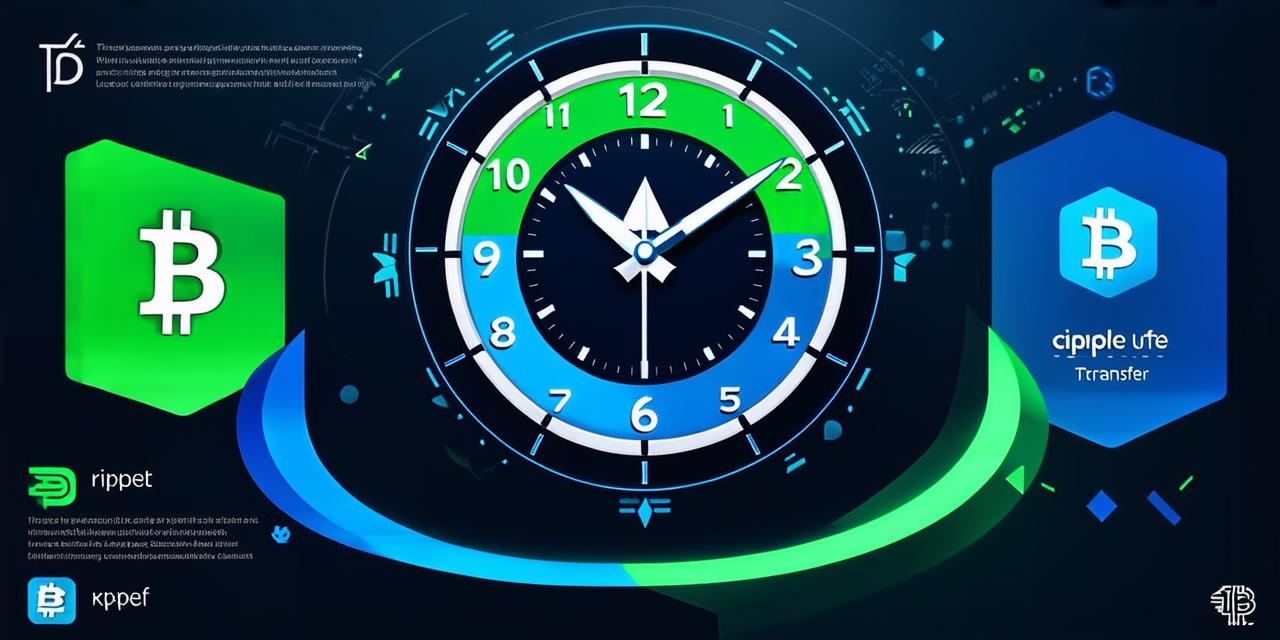Factors Affecting Transfer Time:
Before diving into specific cryptocurrency transfer times, let’s first discuss some of the factors that can impact the speed at which funds are transferred from one user to another. These include:
- Network Congestion: The blockchain network on which a particular cryptocurrency operates can experience congestion due to high levels of traffic. This can cause delays in the transfer process as more transactions need to be processed before the transfer can be completed.
- Gas Fees: Gas fees are the cost of executing a transaction on the blockchain network. Higher gas fees can result in faster transaction processing times, but they can also lead to higher costs for users.
- Smart Contract Execution Time: Smart contracts are self-executing contracts with the terms of the agreement directly written into code. The time it takes to execute a smart contract can vary depending on the complexity of the contract and the number of transactions required to complete it.
- Wallet Type: Different types of cryptocurrency wallets, such as hot and cold wallets, can have different transfer speeds due to differences in security measures and accessibility.
Transfer Times for Popular Cryptocurrencies:
Now that we have discussed some of the factors that can impact transfer times let’s take a look at how long it takes to transfer some popular cryptocurrencies.
Bitcoin (BTC):
The largest and most widely used cryptocurrency in the world, bitcoin transactions typically take between 10 minutes to several hours depending on network congestion and gas fees. For example, if John wants to send $100 worth of bitcoin from his hot wallet to his cold wallet, due to the current network congestion and high gas fees, the transaction may take over 3 hours to complete.
Ethereum (ETH):
The second-largest cryptocurrency by market capitalization, ethereum transactions can take anywhere from a few seconds to several minutes due to the complexity of smart contracts and the potential for network congestion. For example, if Jane wants to transfer $500 worth of ethereum from her hot wallet to her cold wallet, the transaction may take around 15 minutes to complete.
Ripple (XRP):
A popular cryptocurrency used for cross-border payments, ripple transactions typically take around 5 seconds to complete. For example, if Tom wants to send $200 worth of ripple from his hot wallet to his cold wallet, the transaction may take less than 5 seconds to complete.
Litecoin (LTC):
A faster alternative to bitcoin, litecoin transactions typically take between 2.5 minutes to 10 minutes depending on network congestion and gas fees. For example, if Sarah wants to send $150 worth of litecoin from her hot wallet to her cold wallet, the transaction may take around 7.5 minutes to complete.
Bitcoin Cash (BCH):
A fork of bitcoin that prioritizes scalability, bitcoin cash transactions can take anywhere from a few seconds to several minutes due to the potential for network congestion. For example, if David wants to send $200 worth of bitcoin cash from his hot wallet to his cold wallet, the transaction may take around 1 minute to complete.
Factors Affecting Transfer Time:
1. Network Congestion: The blockchain network on which a particular cryptocurrency operates can experience congestion due to high levels of traffic. This can cause delays in the transfer process as more transactions need to be processed before the transfer can be completed.
2. Gas Fees: Gas fees are the cost of executing a transaction on the blockchain network. Higher gas fees can result in faster transaction processing times, but they can also lead to higher costs for users.
3. Smart Contract Execution Time: Smart contracts are self-executing contracts with the terms of the agreement directly written into code. The time it takes to execute a smart contract can vary depending on the complexity of the contract and the number of transactions required to complete it.

4. Wallet Type: Different types of cryptocurrency wallets, such as hot and cold wallets, can have different transfer speeds due to differences in security measures and accessibility.
Conclusion:
In conclusion, the time it takes to transfer cryptocurrency can vary depending on several factors such as network congestion, gas fees, smart contract execution time, and wallet type. While bitcoin and ethereum are popular choices for their large market capitalization, ripple is often preferred for its faster transaction speeds. As developers continue to build new applications within the cryptocurrency space, it’s important to consider these factors when designing and implementing transfer mechanisms to ensure a seamless user experience.
